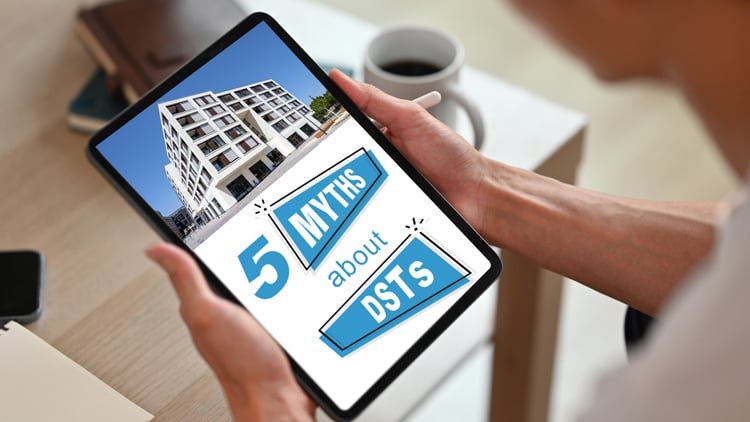Page 14 131 - 140 of 268
Delaware Statutory Trust (DST) 1031 Exchange: What You Need To Know

Commercial real estate investment has become one of the latest asset classes to help investors further diversify their portfolios along with historical choices such as bonds and equities. There is a potential for good returns, and you can diversify your portfolio for added security. The main drawback of commercial real estate is that it can be hard to penetrate. Investing in these properties takes a lot of initial capital. There’s also the matter of management, an intensive process that eats up effort, time, and funding.
Deferred Sales Trust: What It Is and How It Works

In our published articles, we talk extensively about Delaware Statutory Trusts. However, there is another “DST” that investors can leverage in case they do not qualify for a 1031 Exchange but still want to enjoy tax deferrals — a deferred sales trust. In this scenario, you “sell” your property to a trust, and the trust will pay you in “installments” over an agreed-upon timeframe. This legal contract has a few major differences from exchanges, so investors must have an in-depth understanding of how it works before they commit.
Delaware Statutory Trust (DST): Advantages & Disadvantages To Consider

For those who are interested in leveraging the 1031 exchange, joining a Delaware Statutory Trust (DST) is one popular approach you can take. This investment vehicle offers various advantages that make it easier for you to enjoy the tax exemptions of a 1031 exchange. Of course, disadvantages of DSTs exist. Understanding these risks and challenges is critical to help you make more informed investment decisions.
Disadvantages of Delaware Statutory Trust (DST) 1031 Exchange Replacement Properties

Delaware Statutory Trusts (DSTs) are an increasingly popular investment vehicle for those seeking attractive passive investment opportunities. A sponsor creates a DST using Delaware’s unique trust regulations to design a pre-packaged offering for investors. DSTs often focus on specific real estate sectors and include assets that a typical investor could not purchase individually.
What Is The Rate Of Return Of A Delaware Statutory Trust?

Unlike a direct real estate investment, investing in a DST is less complicated. There isn’t any rehab that investors must spend money on. There are no closing costs. The cost-basis is easy to figure out. All of that helps simplify the Delaware Statutory Trust rate of return (RoR) calculation. In this article, we’ll dig into what you need to know about calculating the RoR on a DST.
5 Myths About Delaware Statutory Trust (DST) Funds That You Need to Know

There are many myths about Delaware Statutory Trust (DST) fund investments that we wanted to help clear up. Delaware Statutory Trusts have their benefits and limitations, but let’s address some of the common misconceptions that we often hear from investors.
[Webinar Recap] What is a Sponsor and How Can Investors Evaluate Them?

Delaware Statutory Trusts (DST) can offer lucrative, passive revenue streams if you choose the right Sponsor. When Realized evaluates a Sponsor, we want to determine whether or not the Sponsor is a reliable and reputable one. We also want to research their standing and how it could impact the potential investment and return. Additionally, we examine the offer in an effort to ensure it is a viable one and that it aligns with an investor’s goals.
Potential Pitfalls To Consider When Choosing A DST Advisor Or Broker

With the right guidance investing in a Delaware Statutory Trust (DST) can be a straightforward process. However, you don’t buy shares of DSTs on a public exchange like other investments, you need to work with an advisor who has a specialty in DSTs.
DST Risks & Fees

It should come as no surprise that Delaware Statutory Trusts (DSTs) carry many of the same risks as a direct property investment. After all, the underlying asset driving the investment's performance is some type of real estate asset. From illiquidity to macroeconomic risks, such as rising interest rates, DSTs are exposed to various similar factors that may spell trouble for any real estate investment.
What are the Pros and Cons of a Deferred Sales Trust?

Executing a 1031 exchange is the primary strategy investors use to defer capital gains taxes on the sale of investment properties, but those taxes can also be kicked down the road by establishing a deferred sales trust (DST).
Page 14 131 - 140 of 268


